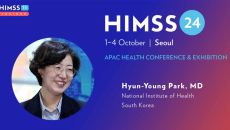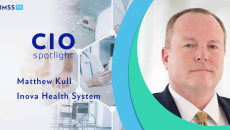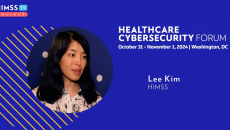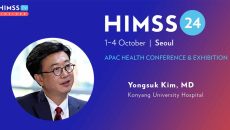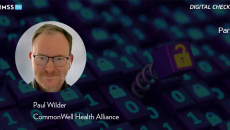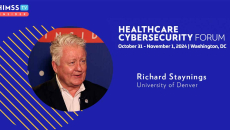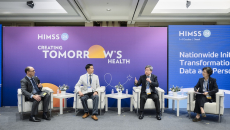Data Warehousing
Professor Jin-Young Park, director of Yonsei University's Yongin Severance Hospital, explains the interconnection of their various smart-technology solutions.
South Korea's National Institute of Health has established a big health database that researchers can tap into to develop new technologies, says director Dr Hyun-Young Park.
The chief information and digital strategy officer explains what achieving certification under the Joint Commission's Responsible Use of Health Data initiative means for Inova's privacy and security practices, and AI data governance.
Lee Kim, senior principal for cybersecurity and privacy at HIMSS, says hospitals and health systems need to effectively make use of their whole cybersecurity staff, whether it's a team of 50, five – or even a single person.
Konyang University Hospital, one of South Korea's designated centres for safe health data access and use for research, is increasing AI deployments to harness big data, says CIO Dr Yongsuk Kim.
Paul Wilder of CommonWell Health Alliance explains why providers are still stuck in document exchange and says he is hopeful that the ability to ensure B2B data security at scale is about two years away.
Cybersecurity expert Richard Staynings of the University of Denver says the clinical information used for AI-enabled decision support models needs to be protected – but that's a tall order with so much of it to manage.
It is now the second APAC hospital presently validated at this stage.
HIMSS24 APAC
Health leaders in Taiwan, South Korea, and Singapore share insights in resolving big data exchange and precision medicine hurdles.
With large ransomware breaches up more than 260% since 2018, "the health care sector needs to get serious about cybersecurity and complying with HIPAA," says the director of the HHS Office for Civil Rights.

